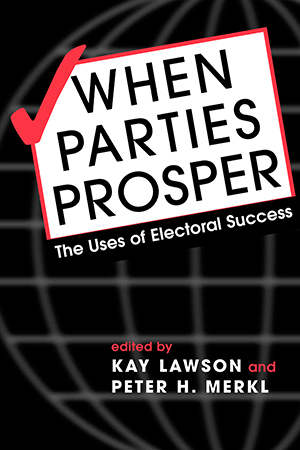
- 2007/431 pages
When Parties Prosper:
The Uses of Electoral Success
Hardcover: $68.50
ISBN: 978-1-58826-534-0
Paperback: $27.50
ISBN: 978-1-58826-510-4
Have parties, and party systems, come back to life in the twenty-first century? Are they capable of playing their roles in ways that will foster rather than betray the public interest? These are among the questions explored in When Parties Prosper, a richly comparative, up-to-date, and accessible study of political parties in power in Europe, Asia, and the Americas.
Each country study in the book reviews the country's political history, describes its present party system, provides a detailed study of the one or two most powerful parties in the system, and evaluates the impact the parties have on government efficacy, stability, and democratic legitimacy. Two broadly comparative chapters highlight differences and similarities across the countries. Following a common structure, the authors offer answers to their core questions—but they are answers that are sure to stimulate discussion, disagreement, and reassessment.





